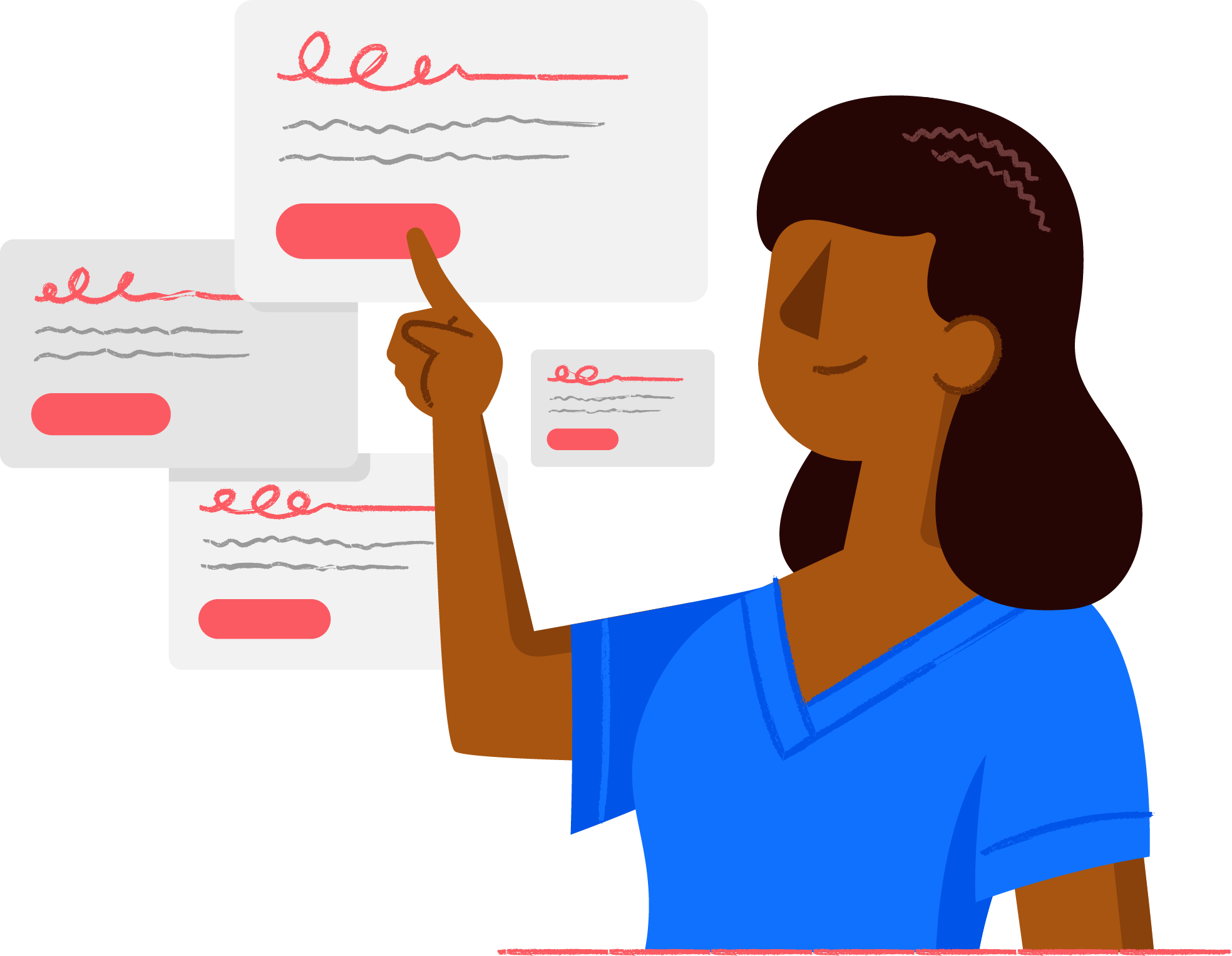Ollie is a post-grad student, studying at Warwick Medical School. In his vlog, he shares his tips for managing time effectively when studying at medical school.
Hi guys, Ollie here. Welcome back to the channel once again.
Now this year I wanted to start working with some external sponsors so I can start bringing you more high production value content and do a wider range of things, so as you can see this video is being produced in conjunction with Healthjobs.co.uk!
You can head over to their website Healthjobs.co.uk to learn more.
So in today's video I get asked quite a lot, like ‘Ollie, how do you how do you get things done day to day?’
I've talked a lot before about how I like to be kept busy all the time and people say ‘you've got the YouTube stuff going on, you've got these kind of side gigs and then you've got medical school on top of that, which is not known for being easy’ and those things are kind of all accurate.
I said when I was doing my undergrad degree even before I got to medical school I spent as much time as humanly possible doing things that were not my degree and I actually had a really fulfilling life because of it.
It had its ups and downs but I think being kept busy gives you way more opportunities than you would have otherwise and it's not something that I wanted to give up when I came to medical school.
I'm not saying by any stretch of the imagination that my time management skills are perfect, far from it and I still have loads to learn, but I think that I have picked up a few things across the last kind of four or five years since going away to university that really do seem to work for me.
If you've got your own tips and tricks on managing your time I'd love to hear from you in the comments down below.
Use a diary
The first thing I enormously recommend is using a diary.
It really doesn't have to be anything flashy, this is just like the Amazon most basic recommended one it was like six or seven pounds, but using a diary - whether it's a physical one or an online one, you might like Google or iCal, whatever you like - but just having something that will let you track where you need to be and when really helps you get control of your life.
Basically it improves your ability not only to plan what you're going to do and how you're going to manage your time but it also obviously serves as a way to pick up on anything that you've forgotten.
You can always check your diary a couple of days in advance and make sure you know what you're going to be doing.
Now that I'm on the wards all the time I use it to make note of when the clinics are that I'm going to be going to and where they are, when I need to meet my consultants when I have conferences, when I have society things going on - fantastic thing to have.

Search Jobs
1000s of jobs for Nurses & Care Professionals. No.1 for UK nursing, care & healthcare jobs.
Search JobsImprove your sleeping pattern
The next major thing is getting control of your sleeping pattern and I'm going to break this down into a few finer points.
This is an area where I'm definitely not perfect because as soon as my kind of daily routine goes out the window say I'm not at uni, in holiday or whatever my sleep cycle can change very drastically and may reverse in some cases so it really is pretty variable.
But the really big thing I want to get across is that I think waking up very early and doing things then is much better than trying to stay up late and working into the early hours of the morning, and take this from someone who's done both.
I will normally be awake kind of around 4:30/quarter to 5:00/ 5:00 o'clock most mornings, I try and be up and out of bed before 5:00 - that's my my general go-to and the reason for that is that you have a kind of golden few hours in that time.
Most people aren't waking up until maybe 7 a.m. something like that so it gives you a really good couple of hours of uninterrupted time.
More people than you would think stay up very late you know most people may go to bed 11 p.m./ midnight and particularly younger people might stay up till 1:00 a.m. and you know not really have any ill effects in the morning so even if you do try and work late I feel like you're still a lot more likely to be interrupted by other people who are still awake and want to talk to you.
I find that waking up very early as opposed to trying to stay up very late means I can get work done.
I can read, I can do whatever I want in the morning; that's time I have for myself and that usually means that I'm ready to go to sleep by maybe 9:00 p.m./ 8:30/9:00 p.m. and it's very sustainable.
I find that I can quite easily repeat it day after day and you get a lot of sleep in that time so it works for me.
 'There's this idea for whatever reason that perfectionism in some way is a desirable quality'
'There's this idea for whatever reason that perfectionism in some way is a desirable quality'Don’t nap!
Secondly try not to nap.
Now I've done polyphasic sleeping before, I never made it onto the ridiculous uberman sleep schedule but I did the everyman and I've done modifications of it and it does, you know I stand by the people who say that it works for them.
What that basically means is you don't do a full uninterrupted 7 to 8 hour sleep you will do maybe 4 hours here and then you'll work for 10 hours and then do another 4 hours or something like that.
You do this kind of intermittent multi-phase sleep but in my experience they take a long time to train yourself into that rhythm and it takes a very intense amount of self-control and under other stresses they tend to fall apart.
I've not been able to make it work at Medical School but the problem with napping in general is that it obviously messes your sleep cycle which is not something you want to play around with too much.
I think if you are going to nap keep it short, 20-30 minutes, and you must must get up when the alarm goes off and not go back to sleep because if you let it run 2, 3, 4 hours you're not going to sleep properly that nice and everything is a bit out the window.

What Do You Think?
Ask questions, comment and like this article below! Share your thoughts, add your opinion in the comments below.
CommentStay awake and energised
The last part kind of thinking the other way it's about how to keep ourselves awake in order to avoid napping.
Sometimes you're gonna need a way to make it through a slump - what do I mean by slump?
I think you might have heard of postprandial somnolence I think the term is that kind of very tired and contented, weak feeling you get after a big meal.
All of us lag in the afternoon sometimes you know whether you're just bored or you're feeling very restful, if it's a hot day or whatever you need to find a way to make it through that without snoozing and different people do this in different ways.
It could be just taking a snack with you, like something fruity with a lot of sugar in it or might be drinking coffee or a chocolate bar, energy drink or something.
In my case I use caffeine tablets which I've talked about before.
I have these in my bag most of the time I think they're in my ‘what's in my bag’ video.
They are just pure powder 200 milligram caffeine tablets, they're dirt cheap and you can just take them with water but I found that they do just perk me up for another couple of hours if I need to get through something without sleeping.
I was saying before, don't eat huge meals because they will just trigger all your parasympathetic systems off to any control do portion control otherwise you'll go into that rest and digest mode and you will nap and I'm speaking from experience.
With sleep, I've had insomnia since my early teens and that's been really difficult to control sometimes, there are some things you can do.
Blackout curtains seem to work for many people, sleep masks; I have one here that has headphones like noise-isolating headphones built into it weighted blankets are another thing that seemed to work for people and just taking 20 or 30 minutes to wind down before you go to bed.
Read a book if you want but get away from your phone, get away from the TV, just take a little bit of time to simmer down and get ready to sleep.
Optimising your tasks
Now the next part the video I just want to talk about is optimising your workflow and managing tasks.
It goes without saying that you should know the deadlines for all the exams and TDOCs and OSCE’s and other things you have coming up way in advance, and always give yourself more time than you think you'll need.
So let's talk about optimising workflow - what do I mean by that?
What I mean is that if you have tasks that you regularly have to do that make up a pretty central part of your life and I'm going to use the example of video editing and processing for myself, it's something I have to do a lot, you need to look for shortcuts or ways that you can balance your task management so that there's as little wasted or dead time as possible.
So for example when I'm recording this video for you guys I'll maybe have 20 to 25 gigabytes worth of video footage right quite a lot and when I finish filming I've got to take that footage, get it on my PC, get it on the drive that are used for editing and then I've got to have my attention on it while I'm editing the video and putting it together.
But then when it's rendering and so during both the import and the export processes it's a very heavy process.
It's going to basically lock up my computer from being able to do anything else significant so when those processes are happening I'm doing other things like generating the thumbnails for the video or scripting the next video or preparing the description of that video, doing graphics for it just basically trying to not do those tasks until it's the optimal time to do them.

Become A Community Contributor
Share your story to help and inspire others. Write or create a video about your job or your opinions!
ContributeDon’t always strive for perfection - just do the best you can
And the last thing I want to talk about is perfectionism or the kind of idea of task yield, but perfectionism is one of those examples.
I find it so irritating when you kind of put people on the spot and ‘you say give me your biggest weakness’ and you get that ‘I'm such a perfectionist’.
I think there's this idea for whatever reason that perfectionism in some way is a desirable quality and from someone who, in school in my first years of university, I absolutely would have been one of those people taking pride in your work and trying to produce as good work as you can.
That's very admirable there's no problem with that, but the issue is is that most systems do not demand perfectionism in order to work and most of them are not actually set up for it.
If you're working on a task right let's say you've put in a lot of effort and you get to about 80% of the way towards that task or your product being kind of perfect as it were that's fantastic that may be enough to satisfy the task.
A problem then comes where let's say you want to get that the rest of that 20% you want something that's a hundred percent perfect .
The issue is that getting that last 20% might take double the effort that you've already put in or double the time, it becomes very quickly a case of kind of diminishing return with time.
I often think that something you might be better doing is instead of trying to hit 100% on the first go, assuming it's a case where you can iterate try and make it as good as you can within the realms of feasibility the first time, then get feedback and use that to focus your efforts on picking up the next set of marks or criteria satisfaction and it just means that, instead of expending all your energy on that one task it lets you do other things as well.
But set that improvement as another task, with another deadline and another amount of effort and time allocated to it and I think that's a better system long-term.
 Optimise your workflow and manage your time effectively with Ollie's tips!
Optimise your workflow and manage your time effectively with Ollie's tips!Get your work out there
And the last thing I want to say is as much as it's possible squeeze everything you're doing for what it's worth.
For example if you're in medical school and you're putting a lot of time into something try and get some research out of it, try and get a poster out there at the very least.
Get it on social media, send to academics, tell people about what you're doing you need to promote it to the world and the type of people who will see it and the type of people who will be interested in what you're doing, and I've just found that so many kind of weird networking opportunities have come out or I've put something on YouTube or Instagram and someone's emailed saying ‘do you want to work on something together’.Getting your face out there and getting the exciting things that you're doing because everyone's doing cool things that they're passionate about.
Get the word out there, tell people what you're doing - it can be a bit cringy and and networking is difficult, it's it's really difficult to put your face out there it takes a lot of confidence but share what you're doing because this breeds more opportunities and therefore more chance for you to succeed.
And on that note guys that's where we're going to end the video.Thank you so much for watching this video I hope you found it useful.
I'd love to know your medical school time management tips - forget medical school let's say you're in sixth form or on another University course, let me know about your time management tips in the comments below I'm sure we can all learn something from one another.
Be sure to hit that like button for me leave a comment subscribe to the channel and go and check out www.postgradmedic.com for more free videos and articles just like this one.
Thank you so much to Healthjobs.co.uk for working with me on this video, be sure to go and follow me on social media as well - I'm @PostGradMedic on Facebook, Twitter and Instagram you can stay caught up so you don't miss anything and I'll see you in the next video guys.
Take care and bye bye for now!
Ollie is studying to become a doctor. If you are in the same position or it's a career path you're thinking of pursuing, then check out our blog - how to become a doctor, plus CV tips and interview guide.






About this contributor
Post-graduate Medical Student
I'm a graduate-entry level medical student, studying at Warwick Medical School. Alongside studying to become a doctor, I upload vlogs to my YouTube channel, PostGradMedic, about my studies to help anyone else who is studying at med school or studying any other healthcare related course.
More by this contributorWant to get involved in the discussion?
Log In Subscribe to comment